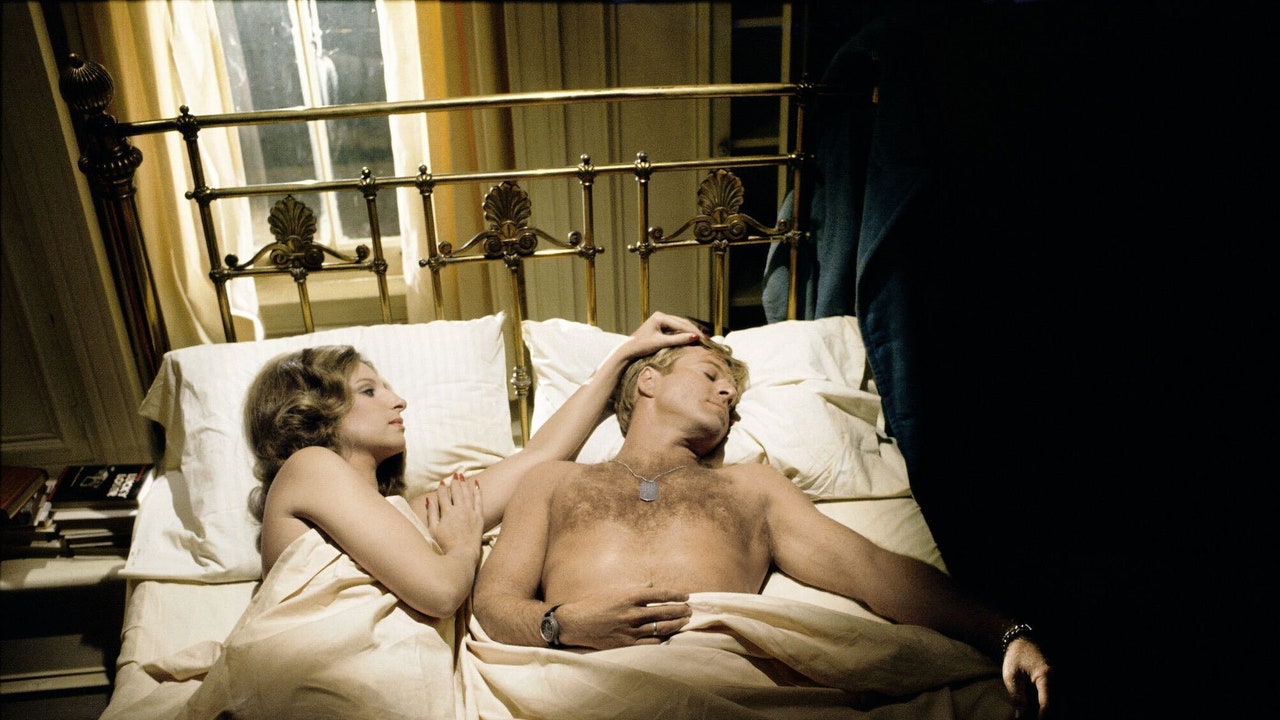Without those two crucial scenes, there’s nothing about her feeling that she has lost her sense of self in Hollywood…nothing about being informed on…nothing about what actually forced her decision. All of that is gone. So now you think they split up simply because he schtupped this other girl one time.
You can hear Sydney on the documentary, describing how they previewed the picture on a Friday night in San Francisco and it was a flop. Then he says that he took out “about five scenes, and they were all politics,” and on Saturday night the picture was a hit. (By the way, my manager, Marty Erlichman, was there and he says the picture played great on both nights.)
I agreed with Sydney on three of those scenes. They involved subsidiary characters having political discussions that went on so long even I lost interest.
Yes, right, cut those extraneous scenes (about 15 minutes)…no great loss…but don’t cut the two scenes that were pivotal to the plot. Don’t cut the crucial three and a half minutes that the whole film revolves around.
It was such a betrayal of Arthur’s story. It destroyed the soul of Katie’s character…and destroyed me.
I was so upset back in 1973 that I asked if I could have the deleted scenes, and I’ve kept those trims in my vault (along with outtakes from my recordings, TV specials, and certain films). Then in 1998, when we were doing the DVD for the 25th anniversary, I asked Sydney if I could show those deleted scenes in the documentary. He could easily have said no, but instead he very generously said, “Okay,” because he understood how passionate I was about this movie. That was Sydney being a real friend.
In the documentary, both Arthur and I talk about how those cuts eliminated vital information. Sydney admits, “I don’t say to this day that I’m right.” The fact is, Ray Stark and the studio were pushing him to take out the politics because they thought it would bore people. As Sydney explained to one journalist, “We were getting so much pressure. Columbia was going under at the time; they hadn’t had a big hit in years, and the picture was going over budget. Bob didn’t get along with Ray Stark, and neither did I. We didn’t know how to mix the politics and the love story and make it work.”
Ray was nervous. Arthur writes in his book that Ray told Sydney to make those cuts after the first San Francisco preview. So Sydney and Margaret Booth, Ray’s favorite editor…a tough woman from another era…went up into the projection booth with a razor blade and cut the film hastily, in one chunk. And in my humble opinion, they threw out the baby with the bathwater.
I took my pleas to Ray, which was useless.
I felt absolutely powerless. My mind just flashed back to that moment as a young girl, standing in my mother’s bedroom doorway and being ignored. Once again, I felt unseen and unheard. I begged Sydney to put those two scenes back in. But he didn’t.
This was the moment when I thought, That’s it. I had always had creative control of my albums, my TV specials, and my concerts. Now I realized, I have to be more in control of my films as well. I have to direct.
Of course, it’s hard to argue with success. The movie became a huge hit…and Columbia’s second-highest-grossing film up till then (they told me the highest was Funny Girl). The Way We Were was nominated for six Academy Awards, but I thought there was something odd when I saw the list. No nomination for best picture. Sydney wasn’t nominated as best director. Arthur wasn’t nominated for his screenplay.
Maybe the reason the movie missed out on the big awards was because people sensed something was missing and didn’t understand why Katie and Hubbell broke up. Several critics pointed out gaps in the storyline. Roger Ebert said, “Inexplicably, the movie suddenly and implausibly has them fall out of love—and they split up without resolving anything, particularly the plot.”
I was honored to be nominated for best actress, but I was very disappointed that Bob wasn’t nominated for best actor for our movie, because he was amazing in it. (He did get nominated for The Sting.) At least “The Way We Were” was up for best original song, and the Academy asked me to sing it on the broadcast, but I was reluctant…my stage fright again. When I get nervous, my heart pounds and it affects my voice, which starts to shake and I lose control. It’s a terrible feeling and I didn’t want to go through that. So they asked Peggy Lee to do it, which was fine with me. (Besides, I wanted to be thought of as an actress first, not a singer.) But in retrospect, I wish I had been stronger and sung the song.




